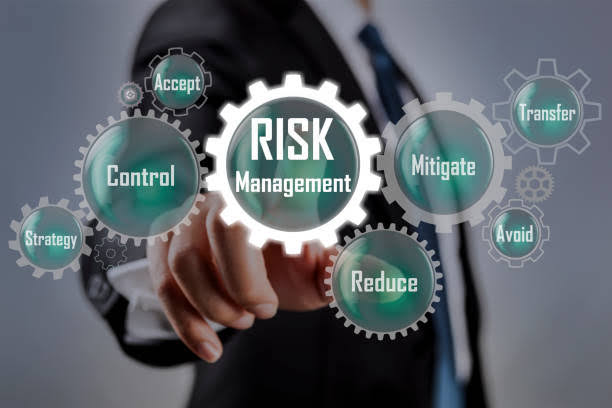
Micro,
Small and Medium Size Enterprises (MSMEs) are essential contributors to the
economy in many countries, providing employment opportunities, fostering
innovation, and driving economic growth.
However,
like any other business, MSMEs face a number of risks that can threaten their
operations and profitability.
It is
important for MSMEs to identify, evaluate, and manage these risks in order to
ensure their long-term success.
Here
are 29 common risks that MSMEs should consider:
1. Economic
Risks: Fluctuations in the economy, such as inflation, recession, or
changes in interest rates, can impact MSME’ financial stability.
2. Market
Risks: Changes in consumer preferences, competition, or market trends can
affect MSMEs’ sales and profitability.
3. Supply
Chain Risks: Disruptions in the supply chain, such as shortages of raw
materials or delays in delivery, can impede MSMEs’ operations.
4. Technology
Risks: Rapid advancements in technology can make it challenging for MSMEs
to keep up with industry standards and remain competitive.
5. Regulatory
Risks: Changes in regulations or compliance requirements can lead to fines,
penalties, or legal issues for MSMEs.
6. Cybersecurity
Risks: MSMEs are increasingly vulnerable to cyber threats, such as data
breaches or ransomware attacks, which can compromise sensitive information and
disrupt operations.
7. Financial
Risks: MSMEs face various financial risks, such as cash flow shortages,
debt, or insolvency, which can threaten their viability.
8. Human
Resources Risks: Issues related to recruitment, retention, training, or
employee morale can impact MSMEs’ productivity and performance.
9. Health
and Safety Risks: Failure to comply with health and safety regulations can
result in workplace accidents, injuries, or lawsuits for MSMEs.
10. Environmental
Risks: Failure to adhere to environmental regulations, such as pollution
control or waste management, can lead to fines or reputational damage for
MSMEs.
11. Natural
Disaster Risks: MSMEs are vulnerable to natural disasters, such as
earthquakes, floods, or hurricanes, which can damage property, disrupt
operations, or cause financial losses.
12. Political
Risks: Changes in government policies, such as trade tariffs or sanctions,
can impact MSMEs’ operations and international business relationships.
13. Reputation
Risks: Negative publicity, customer complaints, or social media backlash
can tarnish MSMEs’ reputation and drive away business.
14. Supplier
Risks: Dependence on a single supplier or vendor can expose MSMEs to risks related
to quality, reliability, or supply chain disruptions.
15. Credit
Risks: Extending credit to customers can result in late payments, defaults,
or bad debts for MSMEs.
16. Legal
Risks: Failure to comply with laws, contracts, or intellectual property rights
can expose MSMEs to legal disputes, lawsuits, or financial liabilities.
17. Operational
Risks: Issues related to production, distribution, or logistics can impact
MSMEs’ efficiency and profitability.
18. Brand
Risks: Damage to the brand, such as product recalls, quality issues, or
negative publicity, can erode customer trust and loyalty.
19. Innovation
Risks: Failure to innovate, adapt to changing market demands, or invest in
research and development can make MSMEs obsolete in the long run.
20. Foreign
Exchange Risks: Fluctuations in foreign exchange rates can impact MSMEs’
international transactions, profits, or competitiveness.
21. Mergers
and Acquisitions Risks: Participating in mergers, acquisitions, or
partnerships can pose risks related to integration, culture clashes, or
financial performance.
22. Succession
Risks: Lack of succession planning, leadership development, or talent
management can jeopardize MSMEs’ long-term sustainability.
23. Disaster
Recovery Risks: Failure to have a contingency plan or disaster recovery
strategy in place can leave MSMEs vulnerable to unforeseen events.
24. Fraud
Risks: Internal or external fraud, such as embezzlement, theft, or
deception, can result in financial losses and reputational damage for MSMEs.
25. Product
Liability Risks: Manufacturing defects, design flaws, or inadequate safety
warnings can expose MSMEs to product liability lawsuits and financial
liabilities.
26. Communication
Risks: Poor communication with customers, suppliers, employees, or
stakeholders can lead to misunderstandings, conflicts, or loss of trust for
MSMEs.
27. Social
Media Risks: Negative reviews, comments, or posts on social media can
damage MSMEs’ reputation and brand image.
28. Data
Privacy Risks: Failure to protect customer data, sensitive information, or
intellectual property can result in data breaches, privacy violations, or legal
consequences for MSMEs.
29. Compliance Risks: Failure to comply
with industry standards, best practices, or ethical guidelines can lead to
fines, penalties, or loss of business.
